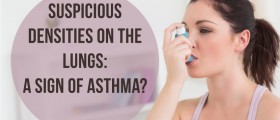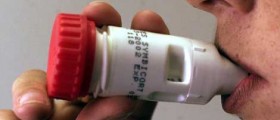
Pneumonia is an inflammation of the lungs. Usually, pneumonia is a consequence of an infection, but the viruses, bacteria, germs, parasites and fungi can also be the causes of the lungs inflammation. It can affect people of any age and it is most common during the fall and winter. It is not considered to be a dangerous disease but it may be life-threatening if the patient is elderly or has weakened immune system.
The symptoms of pneumonia may resemble to flu and they vary from person to person. The most common symptoms are fever, chills, cough, short breath, chest pain, pain in the muscles and joints, headache, tiredness and sweating. The symptoms can be mild or severe. If your temperature is very high and you are experiencing insensitive chest pain, you must seek urgent medical help and you will probably be hospitalized.
People who are older or very young, who smoke, drink alcohol heavily or have poor overall health, are at more risk of pneumonia then healthy adults.In some cases pneumonia can lead to severe complications. Your life may be in danger if the infection gets into your bloodstream and spreads to the other organs or when fluid accumulates in the lungs so you cannot breathe properly. Another possible complication can be an abscess in the lungs.
In order to make a diagnosis, your doctor will do a physical exam which includes listening to your lungs with a stethoscope. If there is a characteristic sound coming from your lungs, the doctor will order an X-ray image of your chest to confirm the diagnosis. In addition, blood and mucus tests will be performed to check the exact cause of pneumonia.
The treatment for pneumonia depends on the symptoms and type. Bacterial pneumonia is typically treated with antibiotics. The patient can feel much better and even cured after a few days but it is important for the patient to finish the full treatment because pneumonia may return. As far as viral pneumonia is concerned, you doctor will recommend bed rest, a lot of fluids, particularly water and healthy food. Fungal pneumonia is treated with antifungal medications. In severe cases of pneumonia, you may have to be hospitalized.
In order to prevent pneumonia you can get vaccinated, especially if you belong to the group with higher risk factors. Since pneumonia can be contagious, try to stay away from the infected people and wash your hands as often as possible. You should stop smoking and start eating healthy. Plenty of fruits, vegetables, whole grains, fluids and moderate exercises are recommended.















Your thoughts on this
Loading...